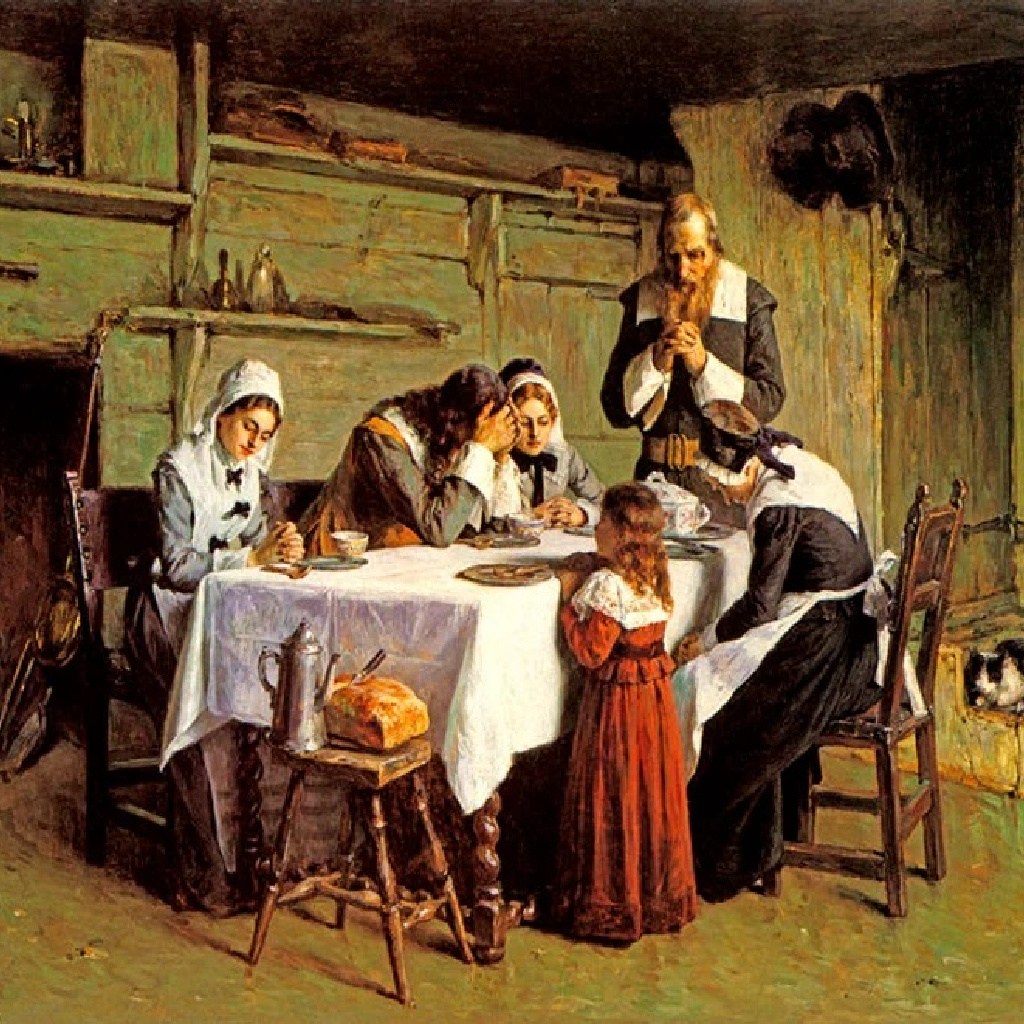“Honour thy father and thy mother: that thy days may be long upon the land which the LORD thy God giveth thee.” ~ Exodus 20:12.
“[Would] that all the rulers of the earth [be] strangled with the guts of priests.” ~ Jean Meslier, paraphrasing a poem by Denis Diderot.
Students of the philosophical foundations of the American Revolution will be familiar with the English philosopher John Locke’s “Second Treatise on Government,” one of the classic formulations of the doctrine, echoed by the Declaration of Independence and Barbie in “Toy Story 3,” that governments derive their just powers from the consent of the governed.
Locke’s First Treatise is less well-known. It consisted of a lengthy rebuttal to “Patriarcha,” a book by Locke’s rival philosopher Robert Filmer. Filmer argued that the idea that governments originated in a contract by the governed to delegate power to their governors was ahistorical and absurd and proposed instead that the power of kings originated with the patriarchal authority of the biblical Adam over his children.
Locke, and others, ridiculed that idea on the ground (among many others) that after thousands of years of tangled history, conquests, and usurpations, a claim by a king to rule as Adam’s senior descendant was absurd. Thomas Paine, in one of the sickest burns in polemical history, succinctly dispatched George III’s claim to rule as the descendant of William the Conqueror: “A French bastard landing with an armed Banditti and establishing himself king of England against the consent of the natives, is in plain terms a very paltry rascally origin[.]” Love and honor our country simply because it is ours.
Nevertheless, the idea that we are ruled by our consent may be a more useful fiction than other, equally fictional origin stories. We consent to be ruled, if only by declining, each April, to throw tax collectors in the nearest convenient muddy pond. While the connection between our votes and the policies that come out the other end of the political sausage factory may be more or less attenuated – it’s not nothing, and it’s more than we had back when whatever kings and emperors said was the last word.
Nevertheless, there remains a tension between “consent” and “divine right,” even today. And it manifests in sometimes unexpected contexts.
The American constitutional system, while substantially democratic, does not accept an unlimited principle of vox Populi, vox Dei. From the beginning, we have recognized that certain human rights are “unalienable,” “endowed by [our] Creator”—even when a majority of the people might want to alienate them. Under this understanding, we, the people, do not so much invent law out of whole cloth or codify our mere whims into legal rules. Rather, our obligation as citizens is to attempt to discern what justice requires and conform our formal laws to what that is.
The Rev. Martin Luther King, Jr.’s monumental “Letter from Birmingham Jail” expounded on this understanding of what law is:
“One has not only a legal but a moral responsibility to obey just laws. Conversely, one has a moral responsibility to disobey unjust laws. I would agree with St. Augustine that “an unjust law is no law at all.”
Now, what is the difference between the two? How does one determine whether a law is just or unjust? A just law is a man-made code that squares with the moral law or the law of God. An unjust law is a code that is out of harmony with the moral law. To put it in the terms of St. Thomas Aquinas: An unjust law is a human law that is not rooted in eternal law and natural law.”
The reference to St. Thomas Aquinas referred to this passage from his Summa Theologica: “A human law has the character of law to the extent that it accords with right reason, and thus derives from the eternal law. Insofar as it falls short of right reason, it is said to be an unjust law, and thus has not so much the nature of law as of a kind of violence”
That is simultaneously a radical notion and an extraordinarily conservative one. Radical, in the sense that no matter how powerful and pedigreed a king might be, or however strong a popular consensus—if a thing is objectively unjust, laws enforcing it have no more claim on people’s obedience than nightsticks and prisons and bullets can compel. It has no more moral weight than the gunpoint demand of a robber. And conservative, in the sense that if there exists an objective moral law, it is something that existed before we happened to be born, which we cannot change simply by exercising our individual or collective will.
If that is true, then “consent,” and consent alone, cannot be the sole foundation of the obligations we are subject to. And an ethic that makes an idol out of solus consensus will wind up exalting nothing more substantial than the sovereign individual will. Which is as “paltry [and] rascally” a foundation as George III’s claim of descent from an illegitimate Frenchman. Because the truth is that no human being goes through life as a Nietzschean superman, subject only to his own almighty will. His will itself—what he thinks of as his deepest self—is a grab-bag of influences from his biological inheritance and his environment. “Practical men,” wrote the economist John Maynard Keynes, “who believe themselves to be quite exempt from any intellectual influence, are usually the slave of some defunct economist.” Sometimes, briefly, we notice that and have flashes of real original, independent thought. But even the best of us would probably estimate their batting average in that department to be roughly on a level with a decent American League designated hitter’s. In other words, in this natural world, there’s an awful lot of what we call our “will” that we can’t even properly call our own. Being too eager to reject any authority but our own—to strangle the kings with the guts of the priests or anyone else with the temerity to suggest that our individual will is not supreme—tends to just make new kings out of the most enthusiastic stranglers.
The truth is that we all enter the world subject to obligations we have no memory of having ever chosen. The most immediately obvious of these are the obligations members of a family owe to each other.
We recognize as childish a childish resistance to a parent’s direction to make one’s bed on the ground that “I didn’t ask to be born!” Well, you were born. Here you are. You landed on this earth, born to parents who have obligations to you, and you have reciprocal obligations to them. (You also, you’ll discover in good time, have obligations to your siblings, to your neighbors, and to the rest of the world, just by virtue of existing among them. But we’ll start with making your bed.) It is possible for criticism to be loyal.
People are messy and often annoying. Abstractions are as clean and comfortable as our imaginations can make them. The reason the human family is such an unsurpassed laboratory of virtue is because, unlike “humanity” or other abstractions, its members are tangible, visible, and present in all their flesh and blood reality. “If a man say, I love God, and hateth his brother, he is a liar: for he that loveth not his brother whom he hath seen, how can he love God whom he hath not seen?” (1 John 4:20). As the Catechism of the Catholic Church puts it, “The family is the original cell of social life … The family is the community in which, from childhood, one can learn moral values, begin to honor God, and make good use of freedom. Family life is an initiation into [the] life of society.”
In its extended discussion of the Fifth Commandment (counted as the Fourth in the Catholic tradition), the Catechism asserts that the commandment “illuminates other relationships in society. In our brothers and sisters, we see the children of our parents; in our cousins, the descendants of our ancestors; in our fellow citizens, the children of our country … in every human person, a son or daughter of the One who wants to be called ‘our Father.’” Expanding further, it is declared that “the love and service of one’s country follow from the duty of gratitude and belong to the order of charity.”
In a law school class, I once echoed the point, often made by others, that America is fundamentally an “idea,” referring to our founding traditions of equality and liberty. My professor (a prominent figure who will go unnamed) answered with a smile that it was nice to think so, but America’s truest foundations were really oppression, conquest, and slavery. I remember actually blinking in surprise: I suppose I had figured such naked and evidently gleeful contempt for my country was mostly an exaggerated figure of right-wing talk-show imagination.
In retrospect, though, I think we were both wrong, at least in part. The United States is blessed that so much of its distinctive identity is bound up with its founding principles: that all men are created equal and endowed by their Creator with their rights to life, liberty, and the pursuit of happiness. It is further blessed by the long and continuing story of our efforts to live up to those principles.
But that is not all that America is. When Abraham Lincoln, in his first inaugural address, referred to the “mystic chords of memory, stretching from every battlefield and patriot grave to every living heart and hearthstone all over this broad land,” he was not drawing only on abstract principles of liberty and equality. Yes, we love, or ought to love, our country in due recognition of its good qualities. But we also love and honor our country simply because it is ours.
That does not mean that we love our country irresponsibly or uncritically, any more than is the case with our families. If the Fifth Commandment and patriotic honor of one’s country are indeed cousins, then “He who loves father or mother more than me is not worthy of me” (Matthew 10:37) applies to our native lands as well. “In the film ‘Lawrence of Arabia,’ which is based on a screenplay by playwright Robert Bolt, the titular character answers, when asked if he is loyal, that a patriot’s loyalty is “to England, and to other things.”
“My country, right or wrong” has been ridiculed as making as much sense as “My wife, drunk or sober.” But that quip may obscure the differences in our particular obligation to a drunk family member as distinct from a random drunk. Whether my wife is drunk or sober (she is, for the record, very thoroughly the latter), she is first and foremost my wife. And while it would be uncharitable enough of me to laugh at an alcoholic stranger, it would be a much graver disloyalty for me to take pleasure in condemning the weakness of a person to whom I owe special obligations.
Likewise, there is a difference between the striving of a “loyal opposition” to better conform one’s country’s laws and institutions to justice versus a mindset that appears to actually relish accusing one’s country of the worst evils.
C.S. Lewis, in a lesser-known essay entitled “The Dangers of National Repentance,” observed that the call for “repentance” often contained more accusation of others than contrition for one’s own failings. “A group of such … penitents will say, ‘Let us repent our national sins’; what they mean is, ‘Let us attribute to our neighbor … whenever we disagree with him, every abominable motive that Satan can suggest to our fancy.” Comparing loyalty to one’s country, and its limits, to filial loyalty, Lewis continued: “The sight of a Christian rebuking his mother, though tragic, may be edifying; but only if we are quite sure that he has been a good son and that, in his rebuke, spiritual zeal is triumphing, not without agony, over strong natural affection. The moment there is reason to suspect that he enjoys rebuking her … the spectacle becomes merely disgusting.”
It is possible for criticism to be loyal, constructive, and loving. It is also possible for it to be otherwise.
Of course, the dividing line can sometimes be less than clear or even actively obscured. Because we are human, the line between “healthy communication to bring about necessary change,” on the one hand, versus “petty, self-serving accusation” will often be perceived differently depending on which side of the criticism we’re on—in our families or our larger community life. As if that didn’t make it hard enough, our respective favored “stationary bandits” have powerful incentives to seek political and financial advantage (there is substantial overlap between the two) by branding the opposition as seditious—as fundamentally disloyal to the core of the American identity.
So in practice, how do we counter these dynamics?
We start, first and foremost, by simply wanting to counter them. By acknowledging that whether we find ourselves in the majority or minority on any particular issue, we owe each other basic obligations as members of the human family and of our communities. If there is one common thread in all of the toxic governmental philosophies of the last century, it is the Big Lie that some of us are exempt from those obligations because only our interests matter. We owe each other basic obligations.
Finally, a sense of proportion, a sense of gratitude, and a sense of justice. Our zeal to further refine our country’s gold should not cause us to dismiss the achievements of our fathers and mothers nor equate gross past evils, defeated by great cost and sacrifice, with incremental reforms that we think still ought to be made. If, in every political contest, we are certain our opponents compare with the monstrous twentieth-century tyrants on their worst day, it is certain that we’ve lost the plot.
The love and honor we owe to our country, like that we owe to our family, is not our highest obligation. Yet pursuing and cultivating those natural loves of our earthly home helps prepare us to love our true home and recognize it when we see it.
















